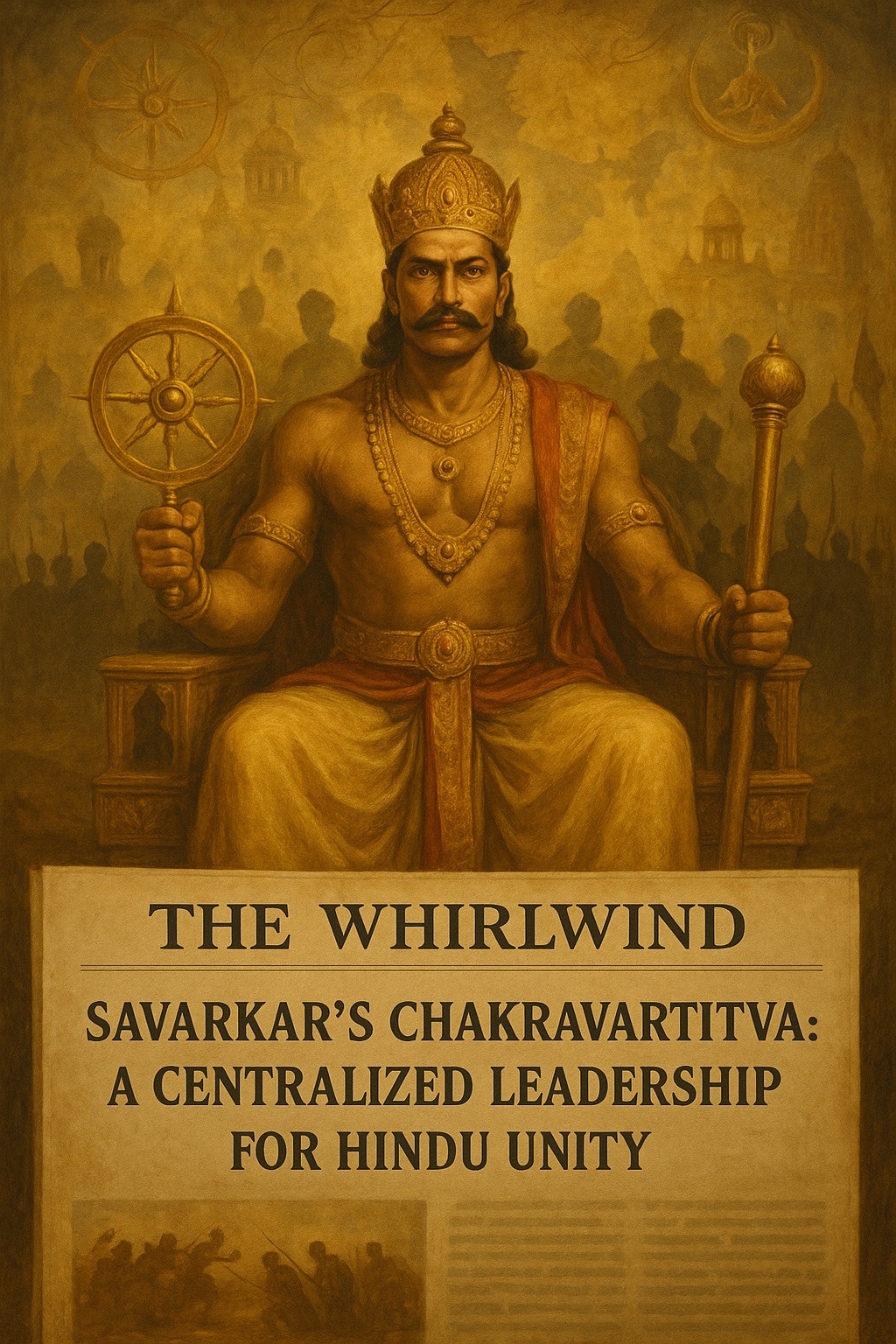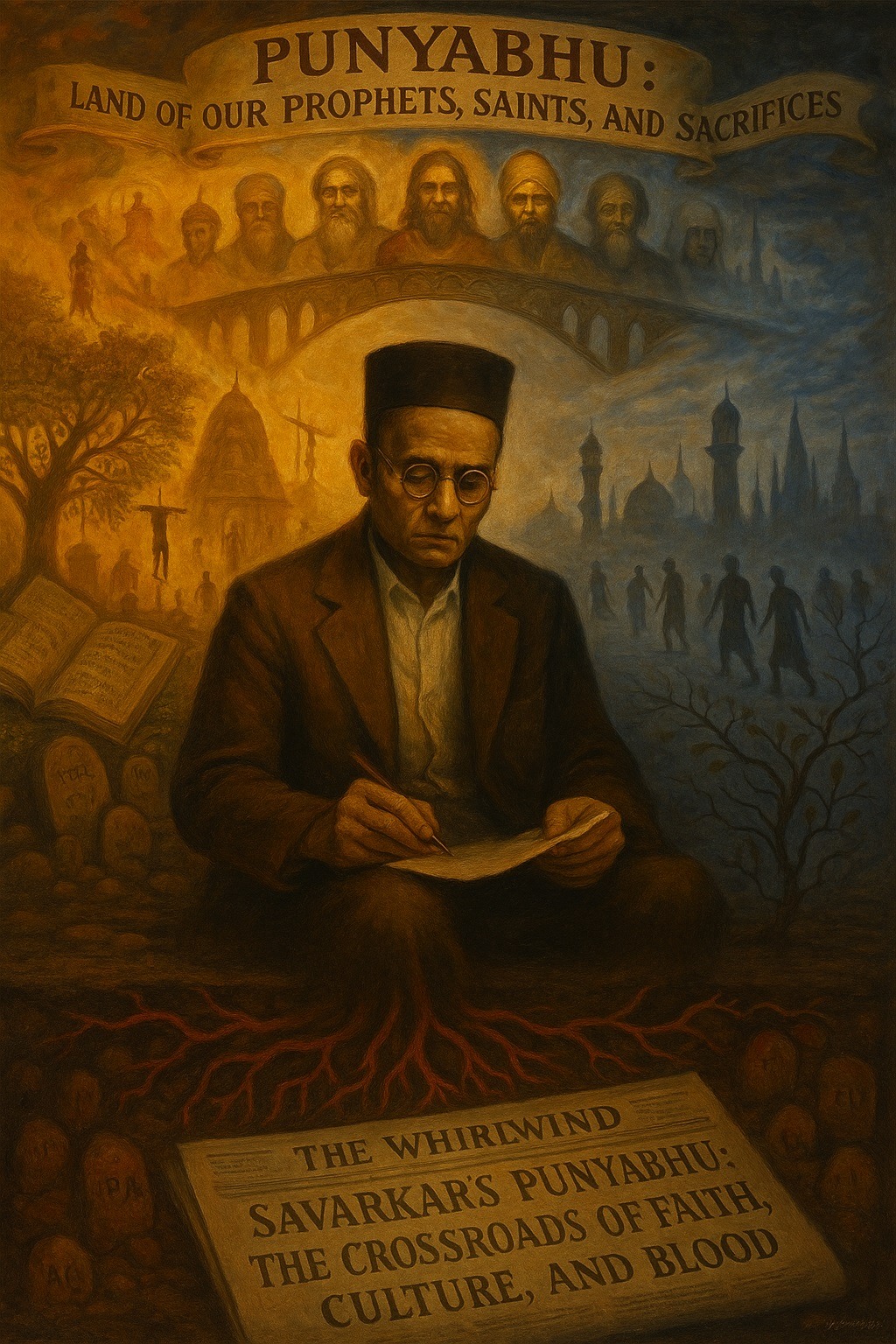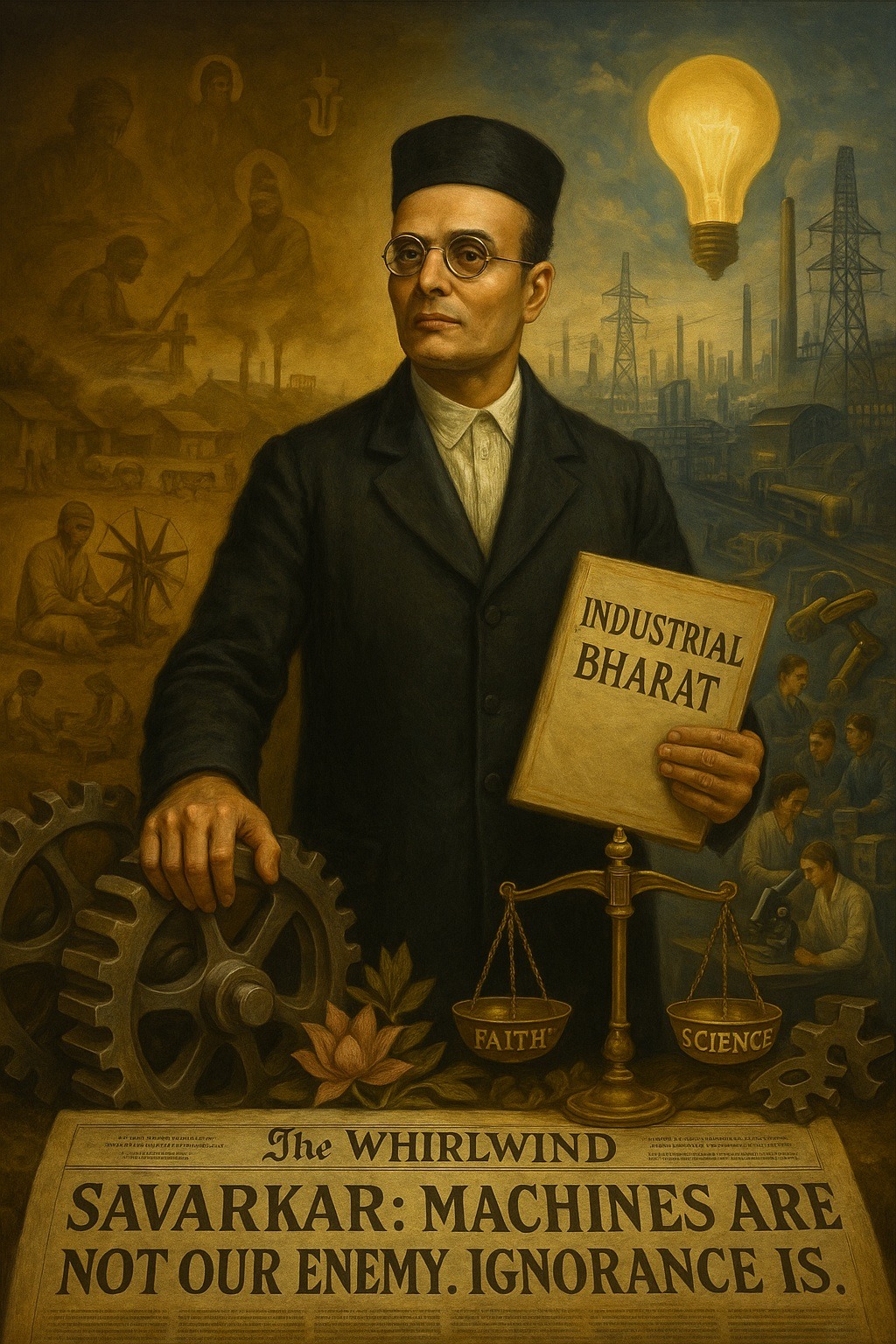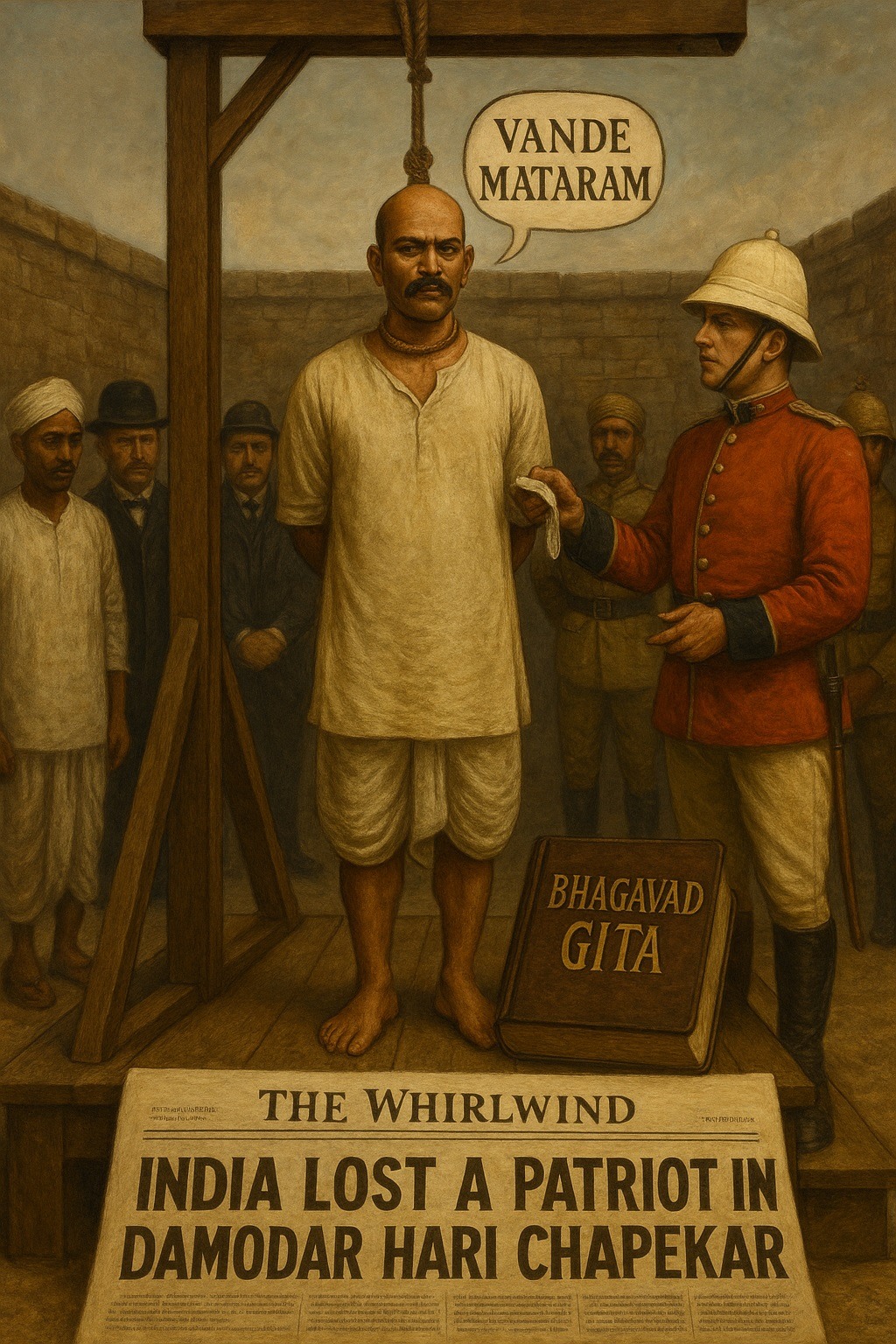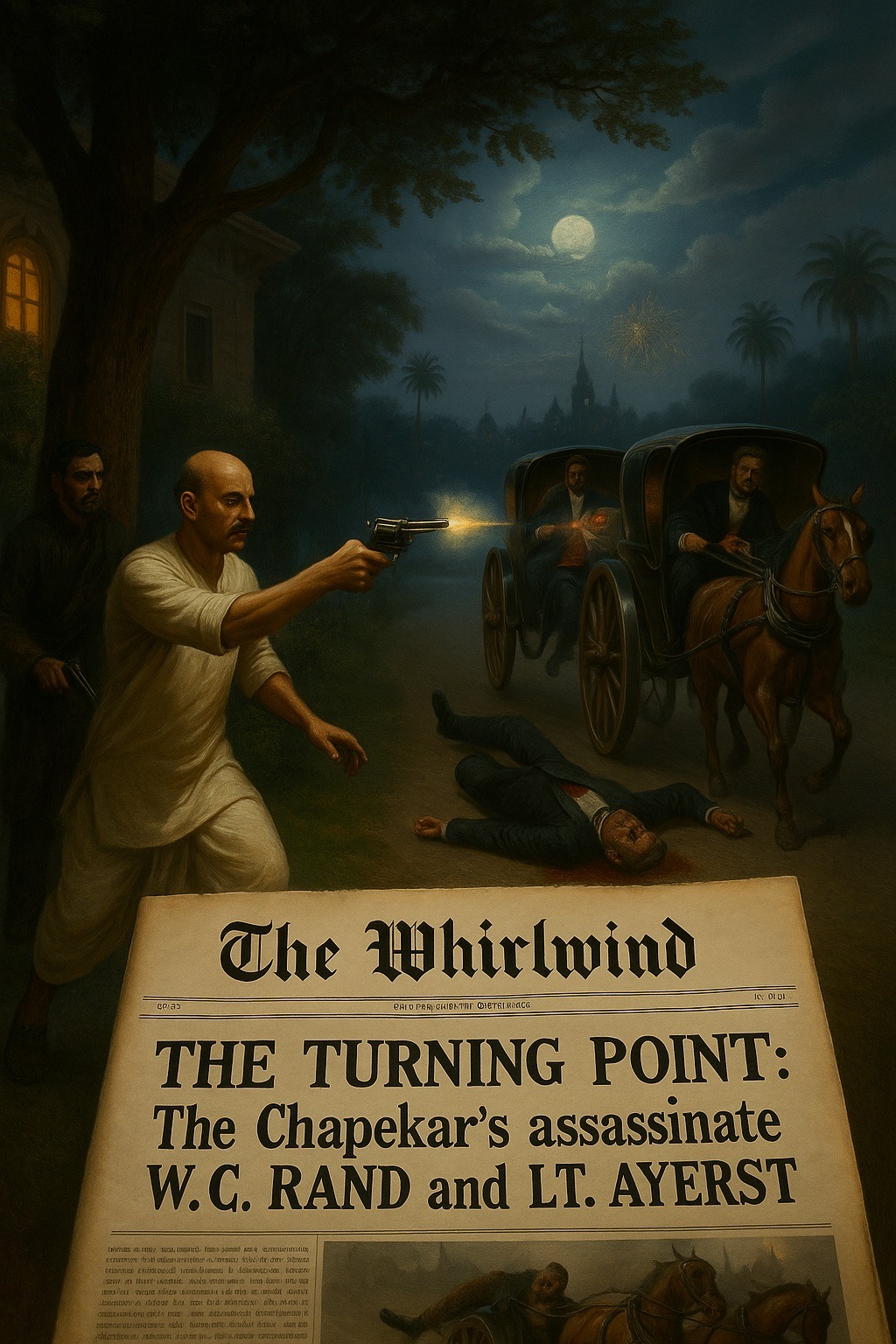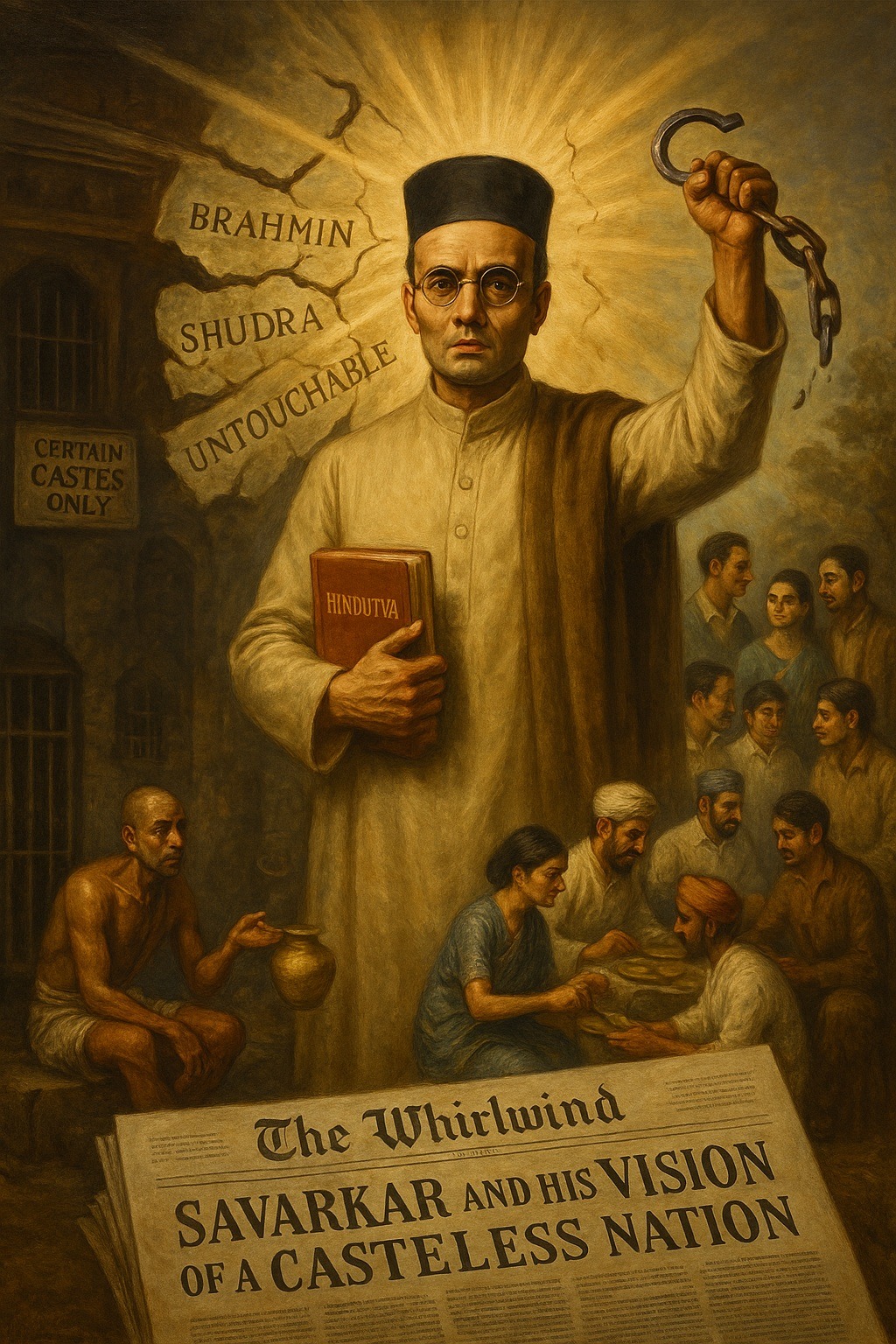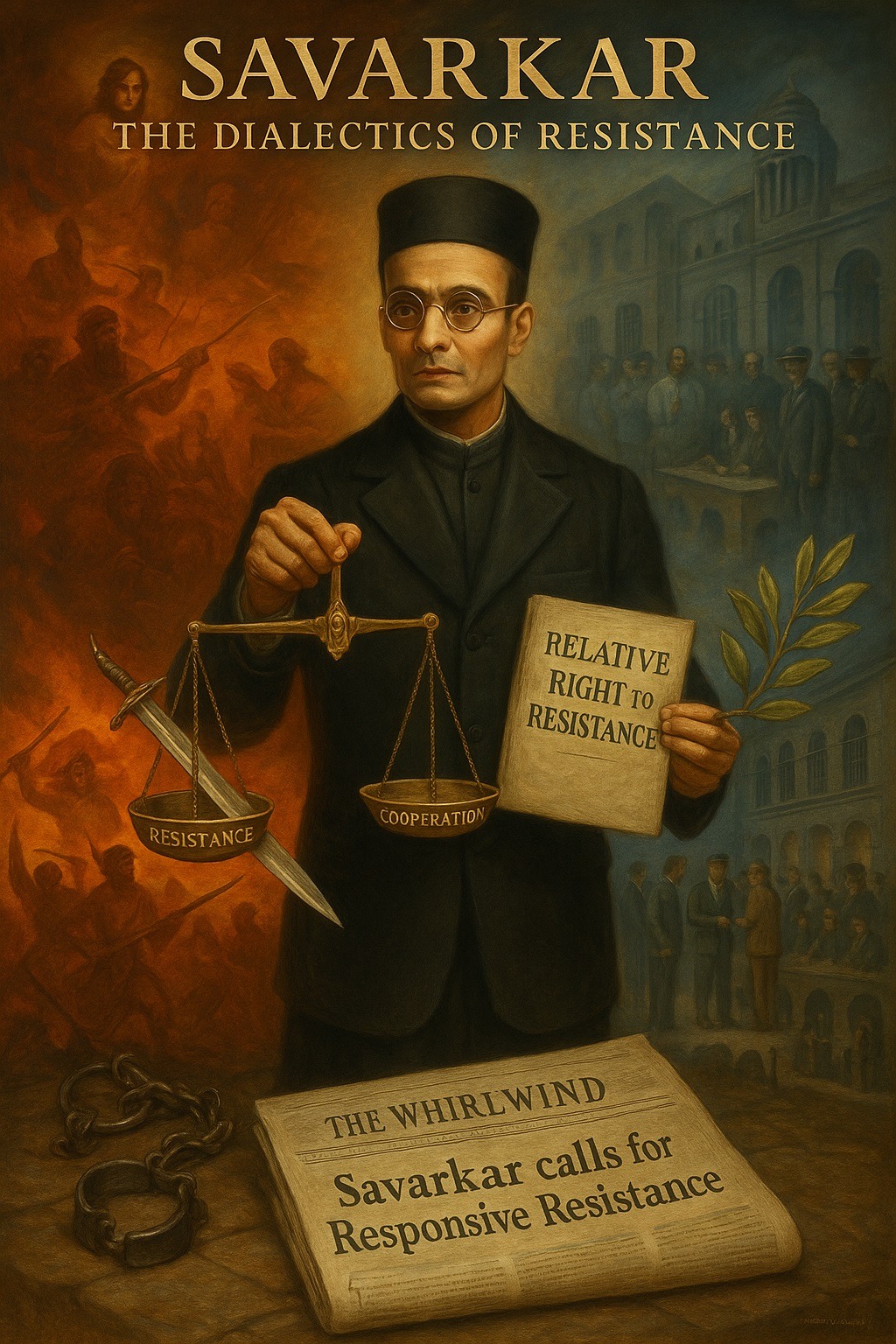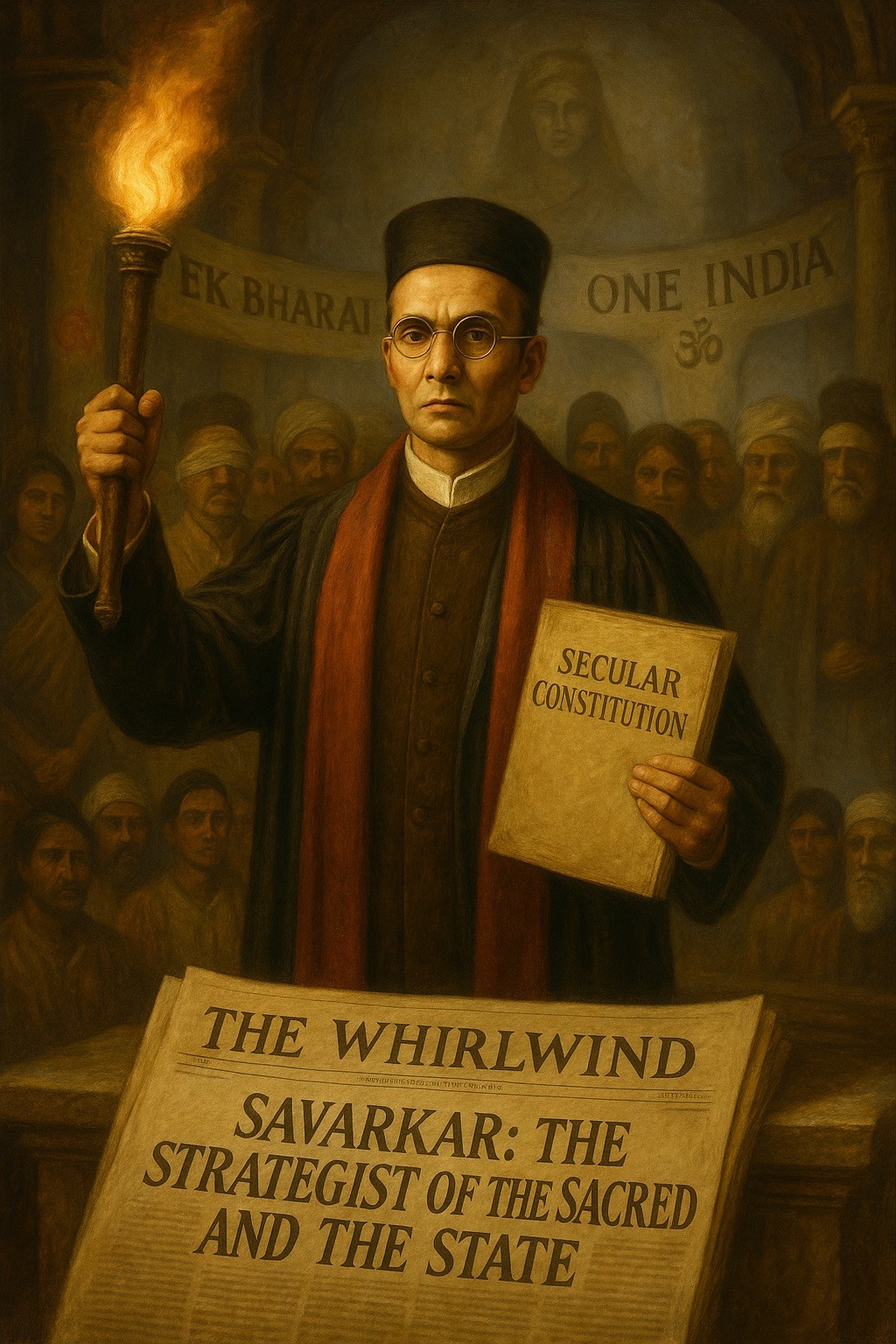Tag: IndianHistory
-
Political Dimension of Hindutva, Part 7 Vinayak Damodar (Veer) Savarkar’s political-religious vision is deeply rooted in an archaic worldview. A key element in his concept of an ideal governance structure for Hindus is the idea of “Hindu leadership through a strong hand.” This theme is recurrent throughout his writings, particularly through his admiration of the…
-
Savarkar’s Philosophy & Worldview , Part 7; Savarkar’s Agnosticism, (3/4) In the ongoing exploration of Vinayak Damodar (Veer) Savarkar’s agnosticism, one of the most intriguing and misunderstood concepts is his use of the term Punyabhu or Punyabhumi, often translated as “Holy Land.” This term has sparked significant debate, with both critics and supporters often misinterpreting…
-
Economic Dimension of Hindutva, Part 6; Savarkar’s Economic Principles (2/13) Vinayak Damodar (Veer) Savarkar was not just a political thinker and revolutionary; he was also a strong advocate for technological progress. At a time when Indian society was grappling with the impact of modernization, Savarkar made a passionate appeal to his compatriots to welcome the…
-
In 1899, deep within the narrow lanes of Tilbhandeshwar, a sixteen-year-old schoolboy named Vinayak Damodar (Veer) Savarkar was quietly rewriting the script of India’s freedom struggle. While the Indian National Congress (INC) still pursued petitions and reform, Savarkar envisioned something far more daring — a secret society devoted to armed revolution. That vision took shape…
-
In the closing years of the 19th century, when the Indian National Congress (INC) still placed its hopes in petitions and polite appeals, a young man from Chinchwad near Pune took a radically different path. Damodar Hari Chapekar became one of the first Indians in modern history to take up arms against British colonial authority…
-
Political Dimension of Hindutva, Part 6 The Concept of “Responsive Resistance” Vinayak Damodar Savarkar was deeply influenced by the idea of “Responsive Resistance,” a term coined by Bal Gangadhar Tilak. This concept proposed that Indian cooperation with British colonial rule should be directly proportional to the level of political reforms granted by the British. More…

